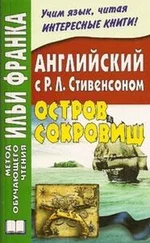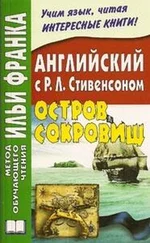Роберт Стивенсон - Ballads
Здесь есть возможность читать онлайн «Роберт Стивенсон - Ballads» — ознакомительный отрывок электронной книги совершенно бесплатно, а после прочтения отрывка купить полную версию. В некоторых случаях можно слушать аудио, скачать через торрент в формате fb2 и присутствует краткое содержание. Жанр: literature_19, Поэзия, foreign_antique, foreign_prose, foreign_poetry, на английском языке. Описание произведения, (предисловие) а так же отзывы посетителей доступны на портале библиотеки ЛибКат.
- Название:Ballads
- Автор:
- Жанр:
- Год:неизвестен
- ISBN:нет данных
- Рейтинг книги:5 / 5. Голосов: 1
-
Избранное:Добавить в избранное
- Отзывы:
-
Ваша оценка:
- 100
- 1
- 2
- 3
- 4
- 5
Ballads: краткое содержание, описание и аннотация
Предлагаем к чтению аннотацию, описание, краткое содержание или предисловие (зависит от того, что написал сам автор книги «Ballads»). Если вы не нашли необходимую информацию о книге — напишите в комментариях, мы постараемся отыскать её.
Ballads — читать онлайн ознакомительный отрывок
Ниже представлен текст книги, разбитый по страницам. Система сохранения места последней прочитанной страницы, позволяет с удобством читать онлайн бесплатно книгу «Ballads», без необходимости каждый раз заново искать на чём Вы остановились. Поставьте закладку, и сможете в любой момент перейти на страницу, на которой закончили чтение.
Интервал:
Закладка:
Hither she went and thither in all the coasts of the land.
They tell that she feared not to slumber alone, in the dead of night,
In accursed places; beheld, unblenched, the ribbon of light 9 9 Note 9, page 21. “ The ribbon of light .” Still to be seen (and heard) spinning from one marae to another on Tahiti; or so I have it upon evidence that would rejoice the Psychical Society.
Spin from temple to temple; guided the perilous skiff,
Abhorred not the paths of the mountain and trod the verge of the cliff;
From end to end of the island, thought not the distance long,
But forth from king to king carried the tale of her wrong.
To king after king, as they sat in the palace door, she came,
Claiming kinship, declaiming verses, naming her name
And the names of all of her fathers; and still, with a heart on the rack,
Jested to capture a hearing and laughed when they jested back:
So would deceive them awhile, and change and return in a breath,
And on all the men of Vaiau imprecate instant death;
And tempt her kings – for Vaiau was a rich and prosperous land,
And flatter – for who would attempt it but warriors mighty of hand?
And change in a breath again and rise in a strain of song,
Invoking the beaten drums, beholding the fall of the strong,
Calling the fowls of the air to come and feast on the dead.
And they held the chin in silence, and heard her, and shook the head;
For they knew the men of Taiárapu famous in battle and feast,
Marvellous eaters and smiters: the men of Vaiau not least.
To the land of the Námunu-úra, 10 10 Note 10, page 23. “ Námunu-úra .” The complete name is Namunu-ura te aropa. Why it should be pronounced Námunu, dactyllically, I cannot see, but so I have always heard it. This was the clan immediately beyond the Tevas on the south coast of the island. At the date of the tale the clan organisation must have been very weak. There is no particular mention of Támatéa’s mother going to Papara, to the head chief of her own clan, which would appear her natural recourse. On the other hand, she seems to have visited various lesser chiefs among the Tevas, and these to have excused themselves solely on the danger of the enterprise. The broad distinction here drawn between Nateva and Námunu-úra is therefore not impossibly anachronistic.
to Paea, at length she came,
To men who were foes to the Tevas and hated their race and name.
There was she well received, and spoke with Hiopa the king. 11 11 Note 11, page 23. “ Hiopa the king .” Hiopa was really the name of the king (chief) of Vaiau; but I could never learn that of the king of Paea – pronounce to rhyme with the Indian ayah – and I gave the name where it was most needed. This note must appear otiose indeed to readers who have never heard of either of these two gentlemen; and perhaps there is only one person in the world capable at once of reading my verses and spying the inaccuracy. For him, for Mr. Tati Salmon, hereditary high chief of the Tevas, the note is solely written: a small attention from a clansman to his chief.
And Hiopa listened, and weighed, and wisely considered the thing.
“Here in the back of the isle we dwell in a sheltered place,”
Quoth he to the woman, “in quiet, a weak and peaceable race.
But far in the teeth of the wind lofty Taiárapu lies;
Strong blows the wind of the trade on its seaward face, and cries
Aloud in the top of arduous mountains, and utters its song
In green continuous forests. Strong is the wind, and strong
And fruitful and hardy the race, famous in battle and feast,
Marvellous eaters and smiters: the men of Vaiau not least.
Now hearken to me, my daughter, and hear a word of the wise:
How a strength goes linked with a weakness, two by two, like the eyes.
They can wield the ómare well and cast the javelin far;
Yet are they greedy and weak as the swine and the children are.
Plant we, then, here at Paea, a garden of excellent fruits;
Plant we bananas and kava and taro, the king of roots;
Let the pigs in Paea be tapu 12 12 Note 12, page 25. “ Let the pigs be tapu .” It is impossible to explain tapu in a note; we have it as an English word, taboo. Suffice it, that a thing which was tapu must not be touched, nor a place that was tapu visited.
and no man fish for a year;
And of all the meat in Tahiti gather we threefold here.
So shall the fame of our plenty fill the island, and so,
At last, on the tongue of rumour, go where we wish it to go.
Then shall the pigs of Taiárapu raise their snouts in the air;
But we sit quiet and wait, as the fowler sits by the snare,
And tranquilly fold our hands, till the pigs come nosing the food:
But meanwhile build us a house of Trotéa, the stubborn wood,
Bind it with incombustible thongs, set a roof to the room,
Too strong for the hands of a man to dissever or fire to consume;
And there, when the pigs come trotting, there shall the feast be spread,
There shall the eye of the morn enlighten the feasters dead.
So be it done; for I have a heart that pities your state,
And Nateva and Námunu-úra are fire and water for hate.”
All was done as he said, and the gardens prospered; and now
The fame of their plenty went out, and word of it came to Vaiau.
For the men of Námunu-úra sailed, to the windward far,
Lay in the offing by south where the towns of the Tevas are,
And cast overboard of their plenty; and lo! at the Tevas feet
The surf on all of the beaches tumbled treasures of meat.
In the salt of the sea, a harvest tossed with the refluent foam;
And the children gleaned it in playing, and ate and carried it home;
And the elders stared and debated, and wondered and passed the jest,
But whenever a guest came by eagerly questioned the guest;
And little by little, from one to another, the word went round:
“In all the borders of Paea the victual rots on the ground,
And swine are plenty as rats. And now, when they fare to the sea,
The men of the Námunu-úra glean from under the tree
And load the canoe to the gunwale with all that is toothsome to eat;
And all day long on the sea the jaws are crushing the meat,
The steersman eats at the helm, the rowers munch at the oar,
And at length, when their bellies are full, overboard with the store!”
Now was the word made true, and soon as the bait was bare,
All the pigs of Taiárapu raised their snouts in the air.
Songs were recited, and kinship was counted, and tales were told
How war had severed of late but peace had cemented of old
The clans of the island. “To war,” said they, “now set we an end,
And hie to the Námunu-úra even as a friend to a friend.”
So judged, and a day was named; and soon as the morning broke,
Canoes were thrust in the sea and the houses emptied of folk.
Strong blew the wind of the south, the wind that gathers the clan;
Along all the line of the reef the clamorous surges ran;
And the clouds were piled on the top of the island mountain-high,
A mountain throned on a mountain. The fleet of canoes swept by
In the midst, on the green lagoon, with a crew released from care,
Sailing an even water, breathing a summer air,
Cheered by a cloudless sun; and ever to left and right,
Bursting surge on the reef, drenching storms on the height.
So the folk of Vaiau sailed and were glad all day,
Coasting the palm-tree cape and crossing the populous bay
By all the towns of the Tevas; and still as they bowled along,
Boat would answer to boat with jest and laughter and song,
And the people of all the towns trooped to the sides of the sea
And gazed from under the hand or sprang aloft on the tree,
Hailing and cheering. Time failed them for more to do;
The holiday village careened to the wind, and was gone from view
Swift as a passing bird; and ever as onward it bore,
Like the cry of the passing bird, bequeathed its song to the shore —
Desirable laughter of maids and the cry of delight of the child.
And the gazer, left behind, stared at the wake and smiled.
By all the towns of the Tevas they went, and Pápara last,
The home of the chief, the place of muster in war; and passed
The march of the lands of the clan, to the lands of an alien folk.
And there, from the dusk of the shoreside palms, a column of smoke
Mounted and wavered and died in the gold of the setting sun,
“Paea!” they cried. “It is Paea.” And so was the voyage done.
Интервал:
Закладка:
Похожие книги на «Ballads»
Представляем Вашему вниманию похожие книги на «Ballads» списком для выбора. Мы отобрали схожую по названию и смыслу литературу в надежде предоставить читателям больше вариантов отыскать новые, интересные, ещё непрочитанные произведения.
Обсуждение, отзывы о книге «Ballads» и просто собственные мнения читателей. Оставьте ваши комментарии, напишите, что Вы думаете о произведении, его смысле или главных героях. Укажите что конкретно понравилось, а что нет, и почему Вы так считаете.









